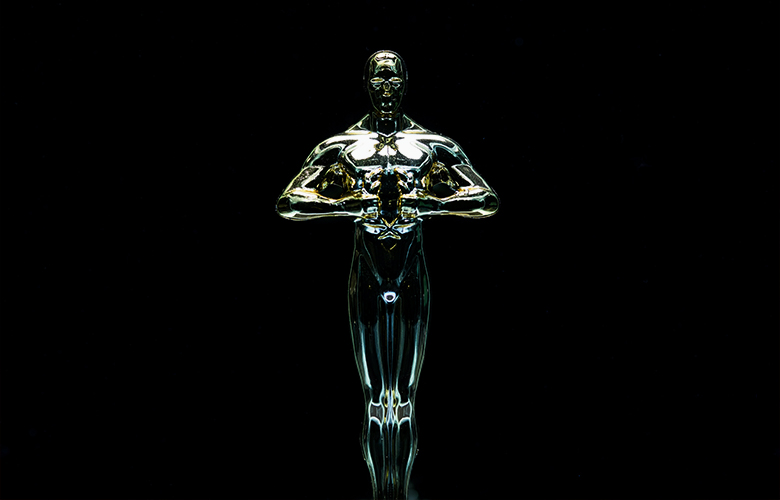
No one seemed to be that interested in watching the Oscars this year. Maybe it’s because the usual opulence and glamor was dulled by the necessary COVID precautions. Maybe it’s that award show viewership has been on a steady decline across the board for years. But it could also have something to do with taste. The biggest shock of the night came just before its end when Anthony Hopkins won best actor over Chadwick Boseman. So who defines artistic exceptionalism?
The academy members aren’t voting for THE best picture (some of them don’t even watch all of the nominated films), they are voting for THEIR best picture. The one that touched them personally, not the film that was objectively better than all others. It’s an arbitrary decision made by people whose only claim to “expertise” is a professional connection to the film industry. And since these decisions are made collectively and anonymously, the element I find most interesting is missing: the personal connection that each academy member has to their favorite films and performances.
I’ve never been able to answer favorite questions. If a stranger at a party casually asks me to name my favorite actor, I immediately start to panic. I break out into a light sweat and stall for time until the awkwardness becomes unbearable and I have to back away muttering “that’s a tough one”. I find those questions debilitating. Will my choice reflect the depth and breadth of my taste? How can I choose one artist or artwork to be my favorite out of the hundreds, if not thousands that I love? It’s marginally easier for me to answer specific favorite questions (if you ask me for my favorite Prince album, I can probably narrow it down to a top five), but trying to single out the best in any artistic category will always send my anxiety levels through the roof.
I also host The Spark Parade podcast, where I essentially ask my guests to choose their favorite piece of art or entertainment. The irony isn’t lost on me.
I know that it’s sadistic to force other people to make choices that are crippling for me, but those are the stories that interest me most.
I want to know how it felt the first time someone heard a Kendrick Lamar song that they still listen to when they need motivation or inspiration. I want to hear about the production of Waiting For Godot that finally allowed someone to appreciate the glorious madness of Beckett. Or to find out that discovering Kehinde Wiley’s paintings allowed someone to see themselves reflected in fine art for the first time. I don’t just want to know what inspires you, I want to know why too.
Awards season is all what and no why. It’s anonymous subjectivity masquerading as objectivity. Awards are primarily a means of placating the best funded, most supported voices in entertainment who are the least in need of the exposure these accolades afford. The Oscars were famously started by Louis B. Mayer as a means of thwarting unionization efforts and maintaining control of the entire industry through flattery. According to Scott Eyman’s book Lion of Hollywood: The Life and Legend of Louis B. Mayer, he was perfectly transparent about his motives:
“I found that the best way to handle [filmmakers] was to hang medals all over them. If I got them cups and awards, they’d kill themselves to produce what I wanted. That’s why the Academy Award was created.”
Mayer’s motives are still pervasive in a system that ostensibly celebrates the best in artistic achievement.
Combining these nefarious priorities with the hollowness of an inherently flawed and subjective voting system leaves us with a series of glossy ceremonies that can never truly achieve their purported goal of definitively singling out the year’s highest achievers in the arts.
In spite of all the complicated motivations behind them, I still enjoy awards shows! I’m a man of many contradictions. But even with the pleasure I derive from the razzle dazzle excitement these events still (just about) manage to generate, I’m acutely aware of their severe limitations as arbiters of taste. Although I love exploring the ways in which art and culture affect us collectively, I feel a stronger pull towards the individual experiences that people have with their cultural touchstones. Those private moments of connection reflect a huge part of what makes us each unique and helps to define us as individuals. As stressful as it is for me to narrow down my artistic favorites, I’d much rather share those stories than have my feelings absorbed into impersonal decisions made by a committee.
The Spark Parade: Art Is A Mirror


Adam Unze is an actor, voice artist and podcaster based in New York City. On his weekly podcast The Spark Parade, he geeks out with artists and entertainers about the single cultural work that's most inspired them.
Read Full Profile© 2021 TheatreArtLife. All rights reserved.

Thank you so much for reading, but you have now reached your free article limit for this month.
Our contributors are currently writing more articles for you to enjoy.
To keep reading, all you have to do is become a subscriber and then you can read unlimited articles anytime.
Your investment will help us continue to ignite connections across the globe in live entertainment and build this community for industry professionals.